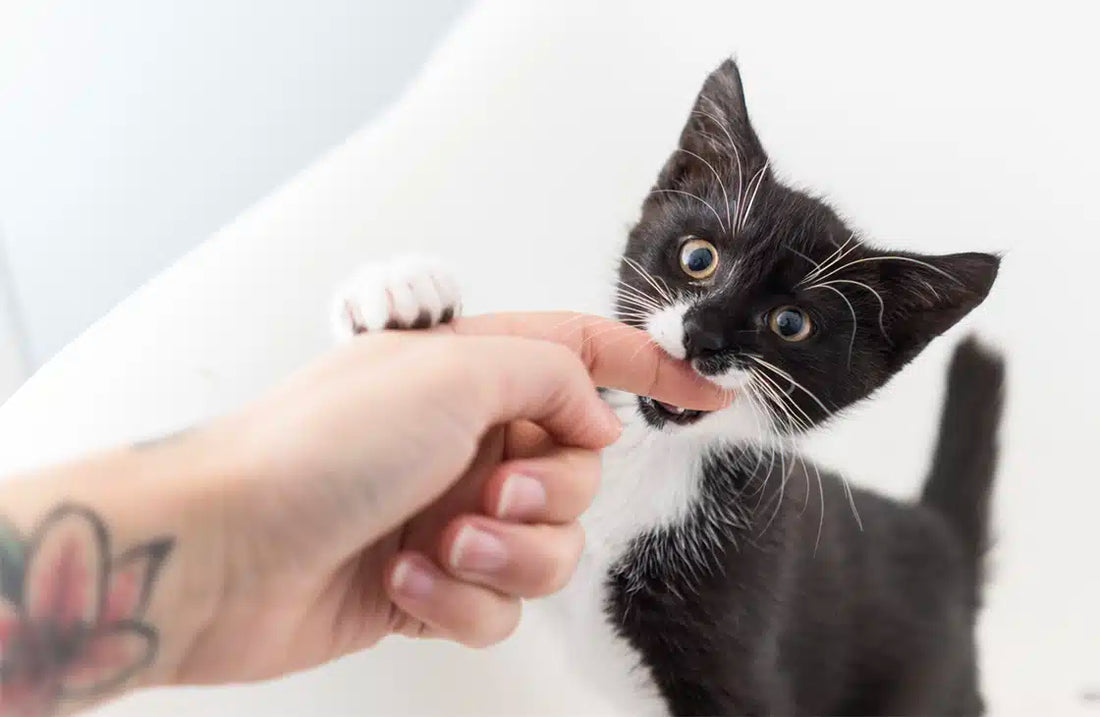
Why Do Cats Bite? Understanding and Preventing Playful Aggression in Cats
Share
Why Do Cats Bite? How to Stop Aggressive Play Behavior
If you've ever wondered, "Why is my cat biting me during play?" or been surprised by a sudden ankle ambush, you’re not alone. Many cat owners experience this behavior, especially with kittens or young cats. While it may seem aggressive, biting is often part of a cat’s natural hunting instincts.
Play or Aggression? Understanding Cat Behavior
For cats, play is never just fun—it's simulated hunting. This includes:
- Jumping
- Pouncing
- Clawing
- Biting
Young cats especially tend to bite more often as they’re still learning how to control the force of their bites. The problem begins when humans unknowingly reinforce the wrong behaviors—like allowing the cat to chase fingers, hands, or feet. To your cat, this looks like a green light to hunt you.
Additionally, some cats may bite due to overstimulation. If they’re excited and lose control, they might snap or lash out without meaning harm.

How to Play With Your Cat Without Getting Bitten
The most important rule: Your hands are not toys. Here’s how to redirect biting behavior properly:
- Use interactive toys only – such as feather wands, cat tunnels, mouse toys, and balls.
- Keep play sessions short and engaging – end the game at its peak to avoid overstimulation.
- Stop the game immediately if biting happens – no yelling, no hitting. Simply turn around and walk away.
- Reward gentle play – praise your cat or offer a treat when they play without using teeth or claws.
Your cat will quickly learn that biting ends the fun, while soft behavior earns rewards.

Managing Overexcitement During Play
Sometimes cats bite because they become too excited. Here’s how to calm things down:
- Introduce short breaks during play.
- Switch to a calm activity like gentle petting or treat time.
- Avoid roughhousing that amps up their energy too much.
Giving your cat space and time to reset helps them self-regulate and play more mindfully.

What You Should Never Do
To build trust and reduce biting, avoid the following:
- Never hit or push your cat, even lightly. It triggers fear or aggression.
- Don’t encourage biting just because it seems cute. Cats don’t know the difference between playful and painful.
- Don’t play using your hands. Even if it feels harmless now, it teaches dangerous habits.
Instead, reinforce good behavior:
- Praise gentle interaction.
- Use calm words or treats when your cat catches a toy without using teeth.
- Be consistent. Over time, your cat will associate soft play with positive experiences.
Every Cat Learns at Their Own Pace
Some cats need just a few days to learn new rules, while others take weeks. Be patient, consistent, and loving—your reward will be a well-behaved pet who plays gently and trusts you fully.
